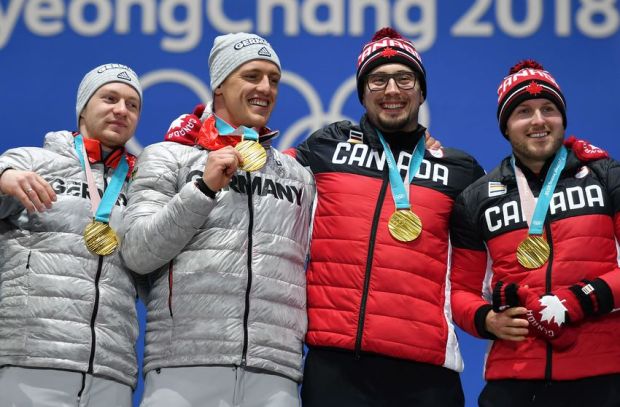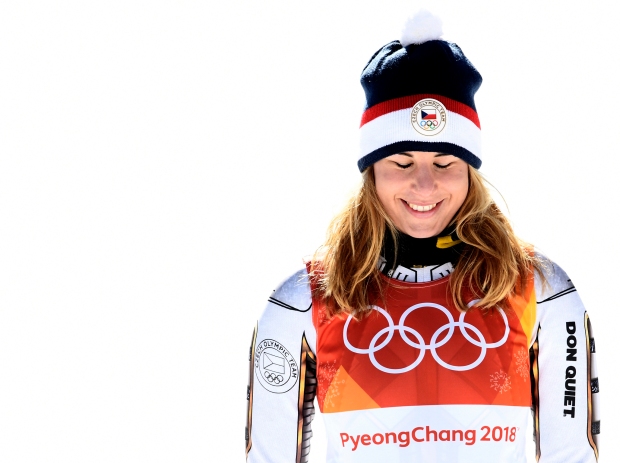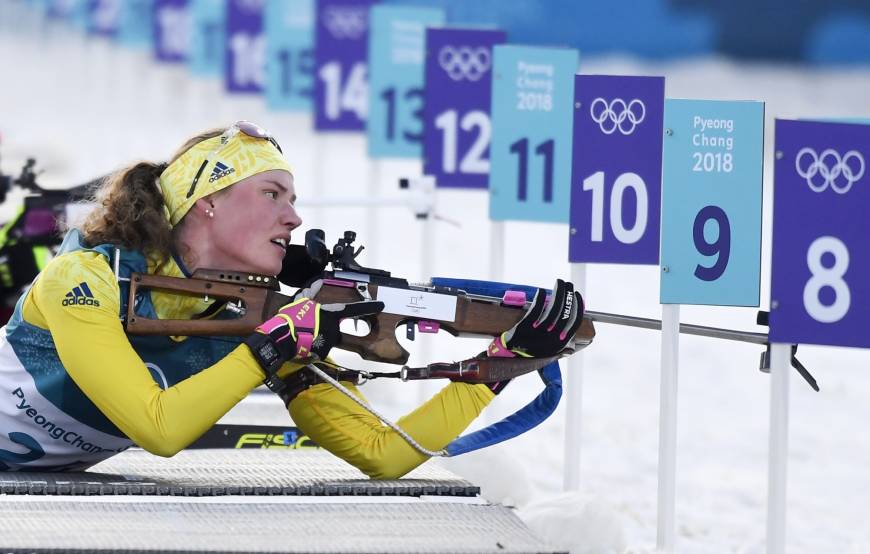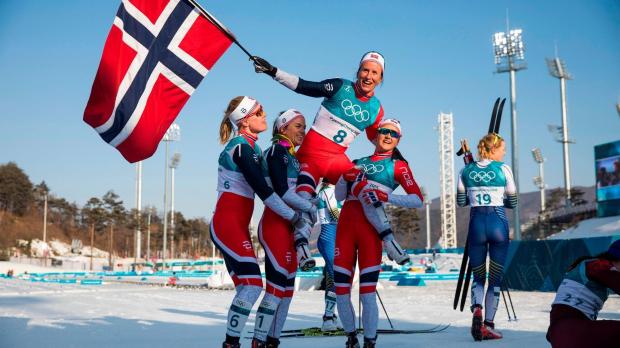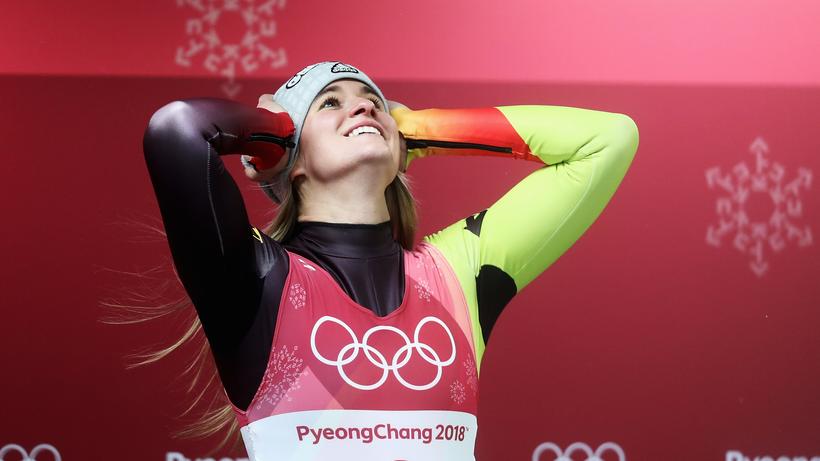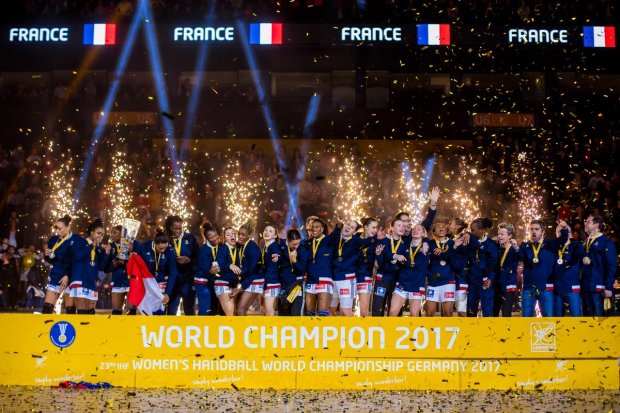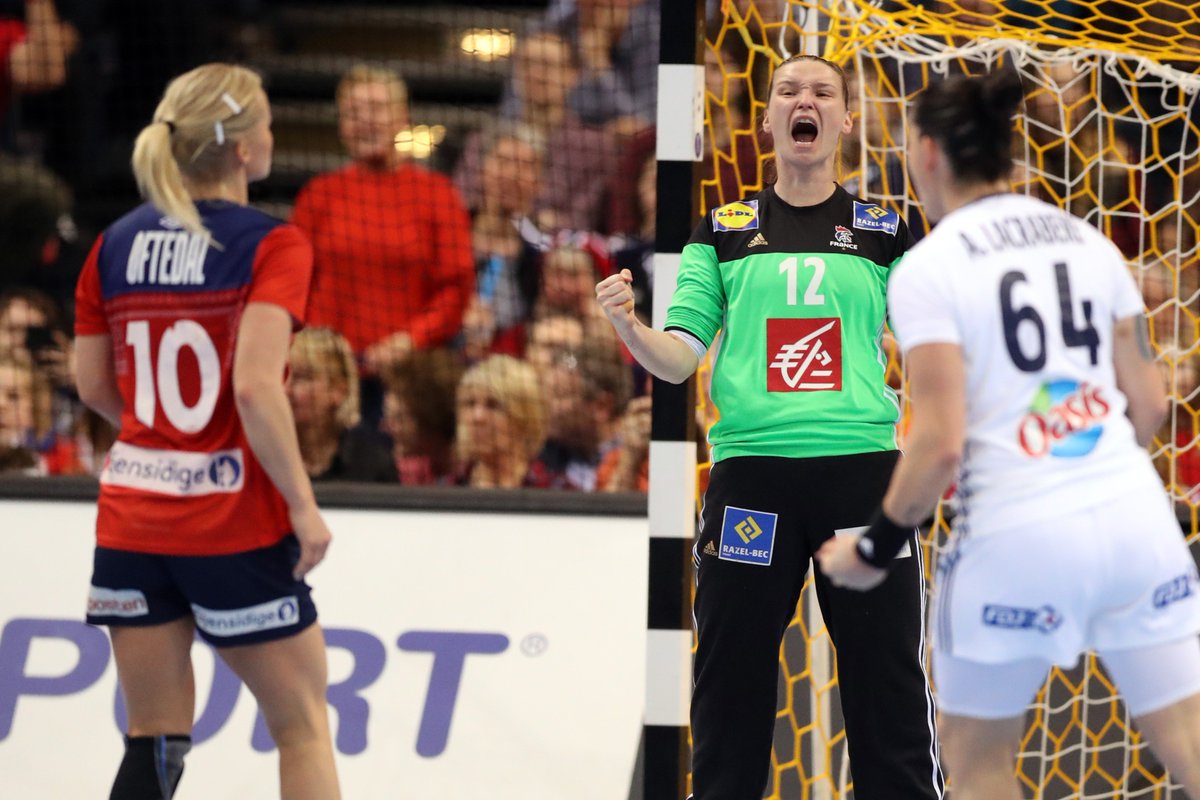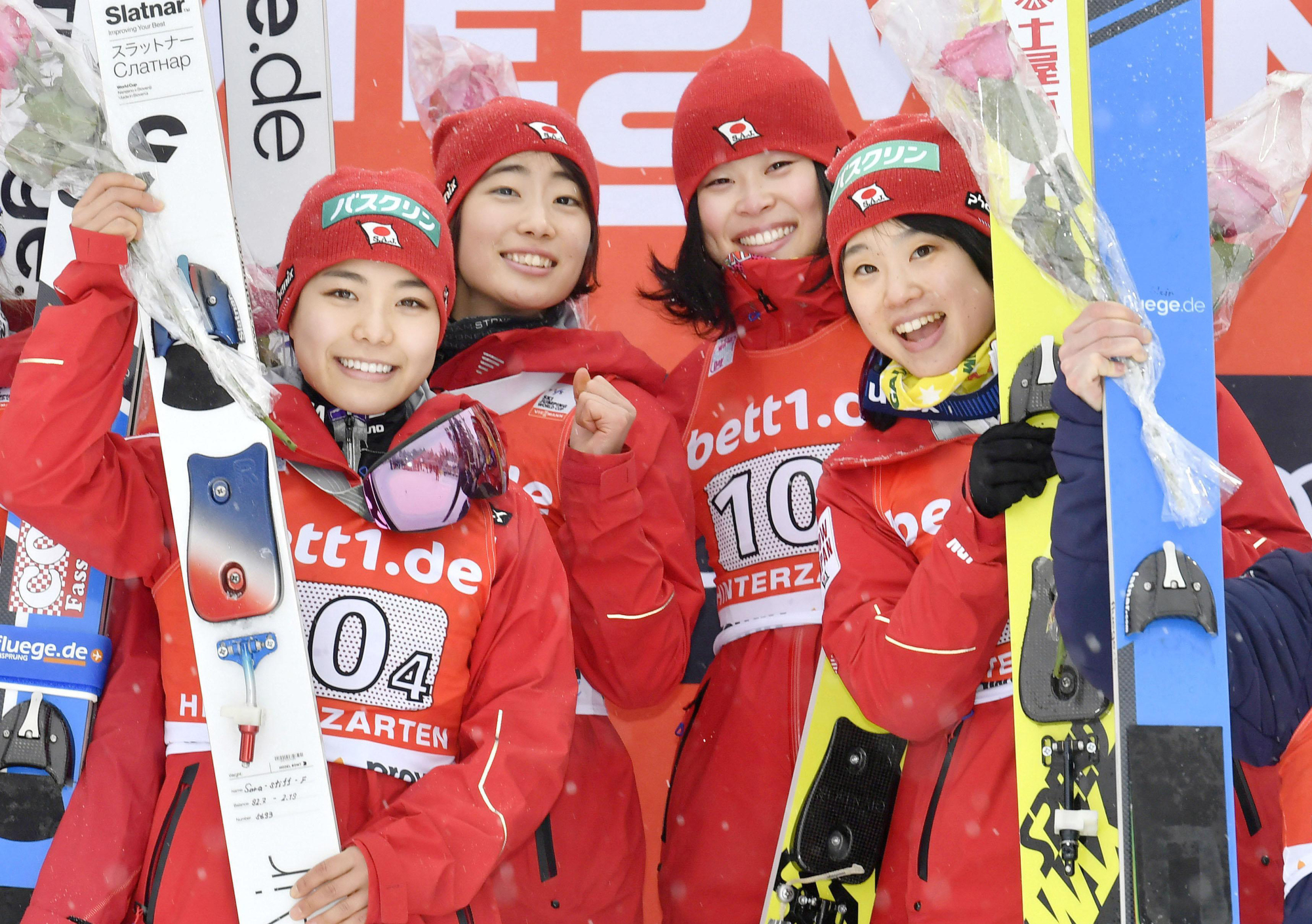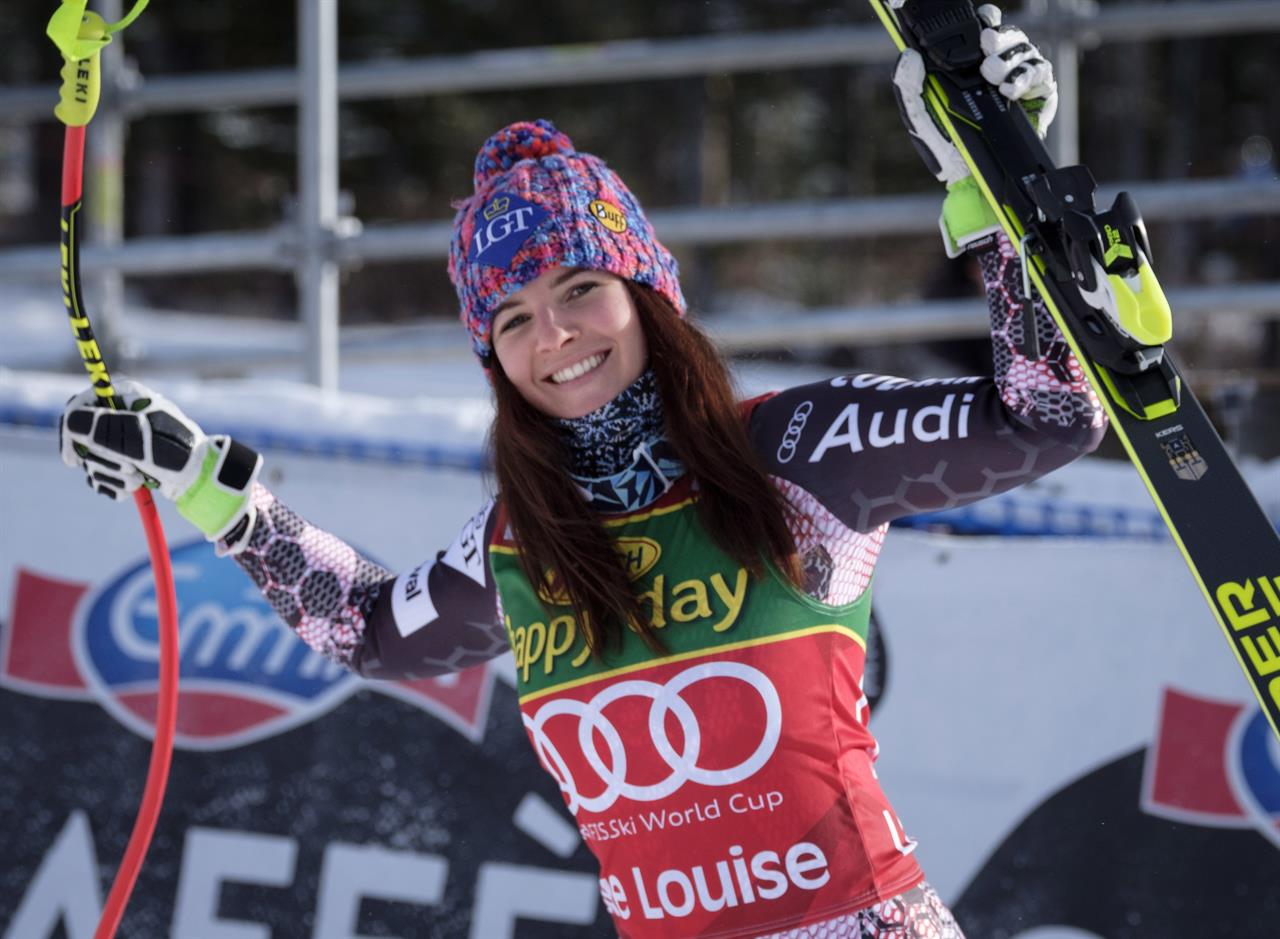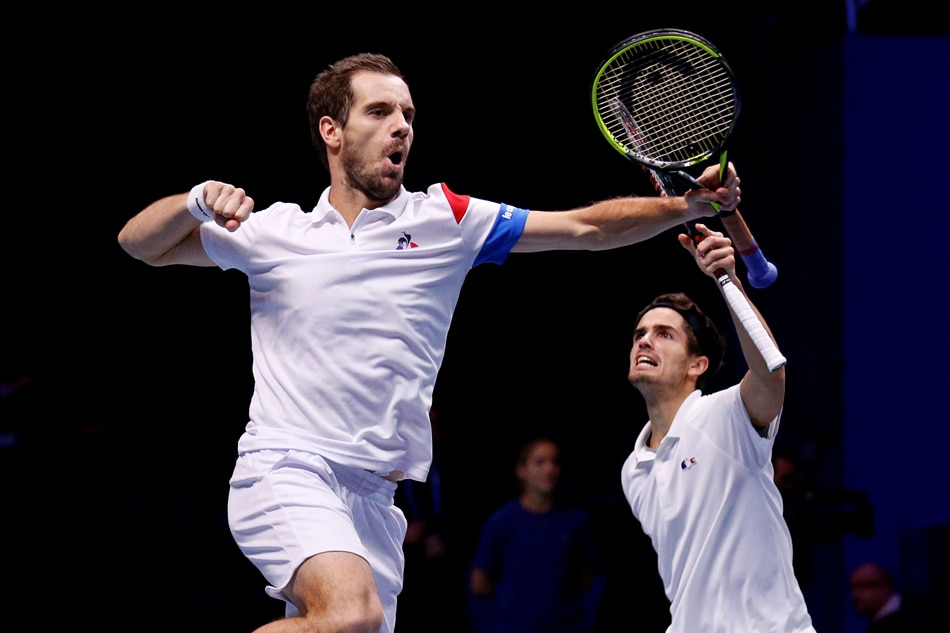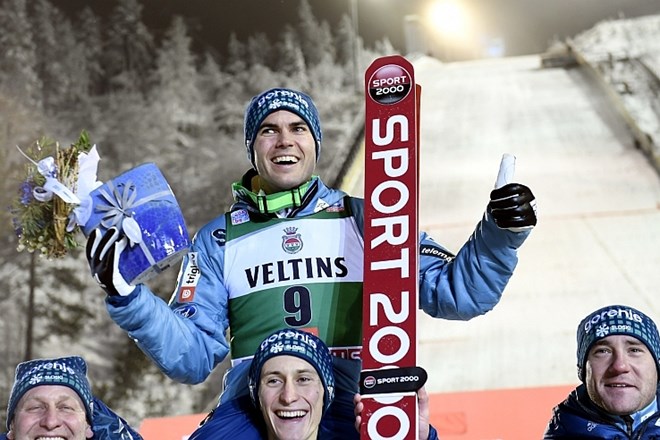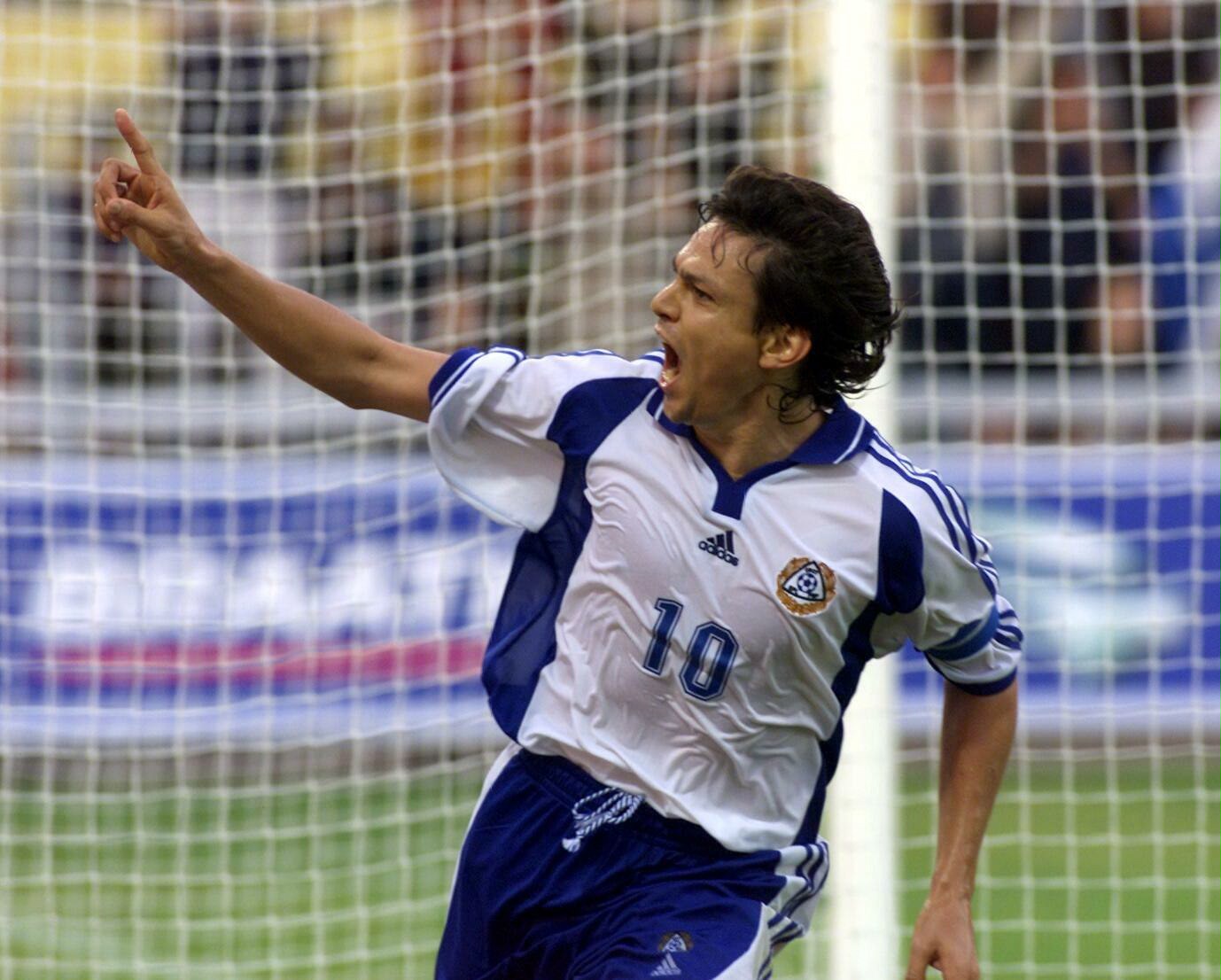We’ve figured out who were the best athletes and our favourite moments of the 2018 Winter Olympics, but before closing the book for another four years, I wanted to touch on a few other topics to deliver a more comprehensive picture of what the action in PyeongChang entailed and what we can derive from it, especially on a country-by-country basis.
However, before we delve into the results, let’s award a few special mentions that could complement the previous chapters of this Winter Olympics review.
Best duel: Alina Zagitova vs Evgenia Medvedeva
Friends, training partners and compatriots, but also opponents with distinct skating styles and artistic concepts. The 15-year-old Alina Zagitova, despite her ballerina manners, is all athleticism and poise, exploding off the ice for breath-taking sequences of jumps and twists that she lands with age-defying efficiency. Three years older, Evgenia Medvedeva is eminently gracious and creative, an artisan who pours her soul into the routines and disappears into character, sublime in the technical aspects though not quite able to pull off the same physical exertion of her rival.
Standing head and shoulders above anyone else in the ladies’ figure skating competition, a mere 1.31 pts separated them in the end; Zagitova’s advantage secured with her world-record short program and controversially kept by the jury when the two teenagers scored the same total in the free skate. Superior in the choreographic and interpretative elements, the World Champion Medvedeva was left to rue her luck as Zagitova’s strategical decision to backload her act with the most difficult jumps to leverage extra points paid off. And so the fledgling prodigy beat the established star for Olympic gold, and one girl sobbed while the other smiled, still insensible to what had she had accomplished.

Russian teenagers Evgenia Medvedeva and Alina Zagitova shared the podium in PyeongChang (Richard Heathcote/Getty Images)
Similarly to gymnasts, the career of female figure skaters, particularly those that explode at such a young age, is difficult to handicap, but if Medvedeva and Zagitova can keep the flame burning, watch out. This could be a rivalry for the ages.
Eye-watering (non-sport) moment: Team Korea
We all know the world didn’t change because North and South Korean athletes and officials walked out together in the Opening Ceremony and waved the same flag, depicting a unified Korean Peninsula, but if PyeongChang is to be remembered as a miniscule step towards a political agreement that ends a decades-long stalemate, we can all agree that it was worth it. Platitude or not, sport really does have the power to unite people and nations like few else, and even the most cynical person would have to breach a smile at the sight of players from both countries battling and celebrating together on the ice while forming bonds off it.
https://twitter.com/olympicchannel/status/969331456685174784
And if, ultimately, this concerted effort by both nations’ leaders and the IOC means nothing, every person caught on that arena when Randi Heesoo Griffin scored Korea’s first goal will always have one historical moment to look back on. As will all the members of North Korea’s delegation that got to spent two weeks outside of their secluded state, including the mesmerizing “army of beauties” who trudged from venue to venue, unmistakable on their matching outfits and physical features, waving props, dancing to the beat, clapping and singing catching tunes like “Be Strong” and “Win. Win.”. Ok, the chants were bad but that’s not really what counts, is it?
Worst storyline: The brutal wind
After the mild temperatures found in Sochi 2014, the Winter Olympics were back in the appropriate environment, with freezing conditions castigating the athletes right from the Opening Ceremony, yet the Games could have been staged without the merciless gusts of wind that wrecked competitions and forced multiple delays, particularly in the first week.
Amongst all sports, the alpine skiing calendar was the most affected, with many races postponed to dictate a schedule compression that compelled star athletes (Mikaela Shiffrin, for instance) to drop events, while both biathletes and ski jumpers endured conditions that hampered their ability to shoot straight or land safely.
Course crew slide slip to the finish area after the women’s giant slalom was postponed due to high winds at the Yongpyong Alpine Center (AP Photo/Michael Probst)
Nonetheless, the really problematic situations happened in the women’s snowboard slopestyle and women’s aerials (freestyle skiing) events, which shouldn’t have gone ahead because of the whipping wind. Turning the competitions into a mess or mere survival battles, the unpredictable conditions led to a parade of ugly falls and swaths of athletes restraining from attempting their riskier acrobatics, and that’s a real shame for the IOC. Athletes shouldn’t work four years with a single goal in mind, only to be forced to stake their physical well-being beyond the reasonable for the sake of a sporting competition.
Best venue atmosphere: Short track speed-skating
The Gangneung Ice Arena doubled as the figure skating venue, yet no other ticket in town was a sought-after as an invitation to the electric nights of short track, when locals regularly lost their marbles in the face of their favourite winter sport, the excitement palpable even for those watching on television.
Already one of the most action-packed, chaotic disciplines in the Winter Olympics, every short track race where the national athletes took part was an adventure on its own, with fans enthusiastically cheering name introductions, saturating the building with nervous tension, puffing at the sight of a fall and exploding in hysterics every time a South Korean moved up the pack to close on victory or contest a sprint. And let’s not even get to the outrage and rebelling raining from the stands when any home favourite got disqualified…

Local favourite Choi Min-Jeong strides to victory in the semi-final of the 1500m as two of her opponents wipe out in behind (ROBERTO SCHMIDT/Getty Images)
Country-by-country roundup:
Non-traditional nations that accomplished milestones
A record 30 National Olympic Committees gained medals in PyeongChang, and among those stand out a few that reappeared on the list after long absences. For instance Hungary, one of the most decorated Summer Olympic nations, who reached a podium for the first time since 1980, and couldn’t have asked for better from their short track men’s 5000m relay team, which made the national anthem sound for the first time in a Winter Olympics. Encomiums are thus in order for Viktor Knoch, Csaba Burján and siblings Shaoang Liu and Shaolin Sandór Liu, born in Budapest to a Chinese-father and key parts of the country’s seventh Winter medal since 1924.
Meanwhile, Spain hadn’t medalled in 26-years when Regino Hernández finished the men’s snowboard cross competition in third place, and they didn’t have to wait much more for another since figure skater Javier Fernández twirled his way to a deserved bronze medal in the men’s singles event contested two days later. Although, if we’re rewarding the quickest rebound from feast to famine, New Zealand takes the cake, tripling its all-time count in Winter Olympics in a matter of minutes due to consecutive bronze medals from a pair of 16-year-olds, freestyle skier Nico Porteous (men’s halfpipe) and snowboarder Zoi Sadowski-Synnott (women’s big air), the first Winter medallists from the Pacific nation since 1992.
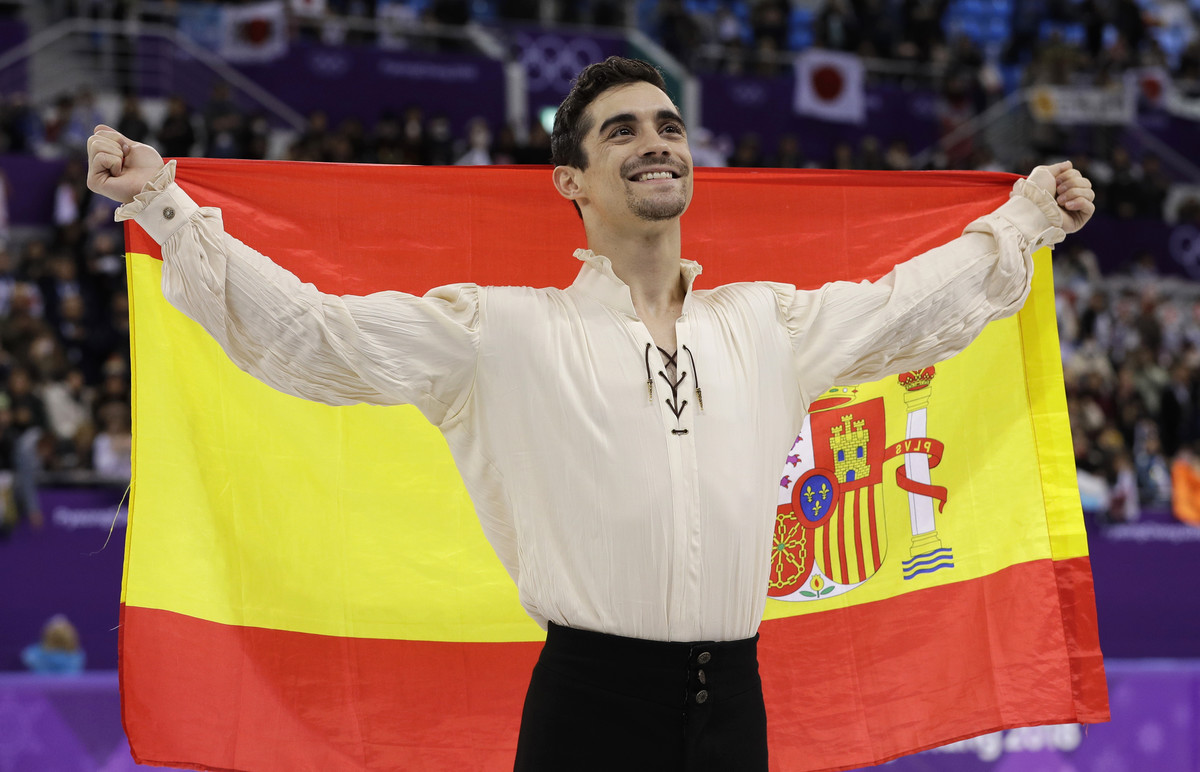
Javier Fernández celebrates with the Spanish flag after winning a bronze medal on the men’s singles figure skating event (David J. Phillip)
Sick of watching their northern neighbours hoard medals in speed skating, Belgium coaxed a bit of glory when Bart Swings finished second in the men’s mass start to snag the country’s first medal since 1998, whereas alpine skier Tina Weirather finally fulfilled her Olympic destiny, placing third in the women’s Super-G to reopen Liechtenstein’s account after 20 years. With Weirather’s success, now 7 of the 10 medals obtained by athletes from the tiny Principality belong to the same family since Tina’s mother, Hanni Wenzel, and uncle, Andreas Wenzel, also achieved podium positions in representation of the only country to hold medals from the Winter Olympics but not the Summer Olympic Games.
Olympic Athletes from Russia (OAR)
Stripped of the national flag, anthem and colours in result of a scandalous doping scheme, the Russian athletes were placed on the eye of the storm and the results they delivered in strenuous circumstances underwhelmed, with the country’s representatives falling way short of the 11 golds and 29 medals that, to this day, make the official tally from their home Games in 2014.
A total of 168 athletes were cleared by international federations to don the special OAR tracksuits in PyeongChang, however, deprived of leading figures such as short track star Viktor Ahn, biathlon’s Anton Shipulin or cross-country’s Sergey Ustiugov and Alexander Legkov, the distinctive performances amongst the group were few and far between, with the Olympic Athletes from Russia totalling 17 medals and just two golds.
While true that those came in iconic events, men’s ice hockey and women’s singles figure skating, it’s no less legitimate to affirm that discomfort from not possessing enough clean athletes to compete in team events in biathlon or speed skating was galling, and things would have looked even bleaker if not for a tremendous up-and-coming generation of cross-country athletes headlined by Aleksandr Bolshunov, Denis Spitsov and Yulia Belorukova, who amassed a surprising 8 medals, almost half of the team’s final sum.
Ice hockey delivered one of just two gold medals for the Olympic Athletes from Russia (REUTERS/Grigory Dukor)
Furthermore, despite all the back spinning going on at the IOC, who seemed desperate to reinstate the Russian Olympic Committee in time for the Closing Ceremony, the OAR delegation still found a way to undermine their own chances, producing two of the four doping cases of the 2018 Olympics: the bizarre failed test of curler Alexander Krushelnitsky, who had to return his mixed doubles bronze medal, and the burlesque positive of bobsleigh pilot Nadezhda Sergeyeva, who had modelled a “I Don’t Do Doping” t-shirt just days before the start of the Games.
Still, Russia’s NOC was eventually welcomed back right after the dust settled, and mediocre results slipped under the radar at home because Vladimir Putin got the last laugh and the one thing he really desired: Olympic gold hanging from the necks of his ice hockey heroes.
China
Four years before the winter sports show stops in Beijing, China got an idea of how much work it still has ahead if hopes of making waves in 2022 are to be realized. In PyeongChang, Chinese athletes collected just 9 medals, the same number of Sochi, yet only one was mined from the most valuable metal and, critically, no improvements could be discerned in most sports despite the army of foreign experts brought on board to expedite the process.
In reality, between the Nordic disciplines (alpine skiing, cross-country, biathlon and ski-jumping) and the three sliding sports (luge, skeleton and bobsleigh), the Chinese failed to place a single athlete in the top 10, and even though they picked up some honours in freestyle skiing, snowboard, figure skating and speed skating (first podium appearance), the only sport where they’re undoubtedly a force to be reckoned with remains short track speed skating, where they’ve conquered 30 of 53 all-time medals. And, naturally, China’s only title in South Korea was conquered at the Gangneung Ice Center, with 23-year-old Wu Dajing setting two world records on his way to an impressive, wire-to-wire victory in the men’s 500m.

Short track speedskater Wu Dajing was the only Chinese athlete to leave PyeongChang with a gold medal (AP Photo/David J. Phillip)
Japan
For only the second time, and first outside of their home soil, the Japanese reached double digits in terms of Winter Olympics honours, and the secret behind that progress were the remarkable results achieved in the Gangneung Oval by their ladies, whose rejuvenated speed skating program tabbed 6 of 13 Japanese medals, and three of the four Nipponic golds.
Accordingly, the highlight of the Japanese performance in South Korea was, arguably, the spectacular victory in the women’s team pursuit over the mighty Dutch trio, though the star of the delegation was still figure skater Yuzuru Hanyu, who defended his title by finishing ahead of compatriot Shoma Uno in the men’s competition despite concerns over a nagging right ankle injury. As for the less expected outcome, it would pertain the third-place obtained by the women’s curling team, which spelled a first ever medal in the sport for the country.

Japan’s Miho Takagi (left), Ayano Sato (center) and Nana Takagi race in the women’s team pursuit final en route to a gold medal. | KYODO
South Korea
The unified ice hockey team grabbed the headlines at home, particularly during the first week, and that may have been exactly what the rest of the South Korean contingent needed to shake off the nerves and deliver an outstanding fortnight, eventually ensuring that the proverbial host nation bump signified a doubling of the medal tally from Sochi (8 to 17).
As expected, most of the load fell on the speed skaters, not only in the short track (3 golds, 6 medals) but also on the longer course (1 gold, 7 medals), whereas figure skating retreated into the shadows on the wake of Yuna Kim’s retirement to cede the stage to a swath of unprecedented successes in disciplines that hold significantly less following in South Korea.

Members of the South Korean women’s curling team celebrate after their semifinal victory over Japan (Aaron Favila / AP)
The case in point would be the success of the “Iron Man” Yun Sung-bin, who tamed the Alpensia track like no other skeleton competitor, but the nice stories extended farther, comprising the four-man bobsleigh unit, who shared the podium with two German sleds, snowboarder Lee Sang-ho, who became the first Korean athlete to win a medal over snow when he finished in the runner up spot of the parallel giant slalom, and the lovely women’s curling team. Nicknamed the Garlic girls for their city of origin, they notched an incredible 8-1 record in group stage before securing silver in what was the country’s first ever participation in the sport.
Sweden
A traditional Winter Olympics powerhouse, Sweden’s delegation left PyeongChang one medal short of Sochi’s total (14 instead of 15) but, probably, in a much better mood by influence of the seven Olympic titles, which equalled the record haul of Torino 2006.
In fact, the total of 2014 was enormously dictated by cross-country (11 of the 14 medals), and while it wasn’t ideal that they got eclipsed by rivals Norway in endurance skiing this time (6 medals against 14), the Swedes found a way to compensate elsewhere, with the most unexpected news travelling from the biathlon centre, where a young team shone brightly to score four podiums and two brilliant gold medals (women’s individual and men’s relay) that bested their neighbour’s record.

Fredrik Lindström heads to the finish line in front of the Swedish crowd in the final moments of biathlon’s men’s relay (Getty Images)
Moreover, in another major battleground for Sweden, the slopes, veterans Frida Hansdotter and André Myhrer claimed a surprising sweep of the alpine skiing (individual) slalom events, while both of the nation’s curling teams played the respective finals in front of the visiting King Carl XVI Gustaf. Unfortunately, the men skipped by Niklas Edin couldn’t resist an American group on a mission, settling for silver, but Anna Hasselborg’s foursome completed the job and made up for the disappointing results in ice hockey, where both Swedish teams failed to reach the last four.
Netherlands
For the second consecutive Olympics, the Netherlands lodged inside the top-five in the final medal standings and, this time, they even showcased a bit of range, spraying some of their speed skating expertise to success in the short track, which accounted for a fifth of their twenty podiums. Including a first ever gold medal, captured by Suzanne Schulting in the 1000m, and a remarkable bronze snatched in the women’s 3000m relay after the Dutch got relegated to the B Final!

Dutch athletes Yara van Kerkhof and Lara van Ruijven rejoice after learning about their unlikely bronze medal in the women’s 3000m relay (ANP)
As for the proceedings in the Oval of Gangneung, the winners of a staggering 23 of 36 medals in Sochi 2014 garnered 16 of 42 (two mass start races added) in Pyeongchang, and 7 of 14 titles, a tally that seemed on the rise when they picked up six in the first seven speed skating events contested before falling flat. Regarding podium sweeps, after the incredible four of 2014, the Dutch swayed just one this time (women’s 3000m) and that can’t be disassociated from the decline in performance of their two legends, Sven Kramer and Ireen Wüst.
The veteran duo, though, still managed to pick up medals number 9 and 11, respectively, to become the most decorated speed skaters in Olympic history, and they were not the only flying Dutch to rewrite the history books since teammate Jorien ter Mors will be immortalized as the first female to medal in two different sports at a single Olympics, winning the 1000m in the long track and bronze with the 3000m relay in the smaller ice rink a few days later.
United States of America
Ranked fourth in both the gold medal (9) and total medal (23) counts, the United States produced their worst Winter Olympics showing since Nagano 1998 because they metamorphosed into the team of the “Almost”.
Indeed, an uncharacteristic 35 American athletes finished between fourth and sixth, however the most worrying trend is another, which keeps popping up at every four year cycle: despite all the money, the USA have grown increasingly reliant on the X-Games events – added in 1992 – to keep a meaningful slice of the pie, and that is manifested in 11 of 23 medals originating from the plethora of freestyle skiing and snowboard showdowns.

17 year-old Red Gerard won the first medal for the U.S. at the 2018 Winter Olympics (Mike Blake/Reuters)
At one point, the four Olympic titles obtained by American athletes belonged to snowboarders, with 17-year-olds Red Gerard and Chloe Kim pairing repeat Champions Jamie Anderson and Shawn White in the slopestyle and halfpipe competitions, but the final picture wind up getting a fresh coat of paint in the form of the three standout gold-medal performances amongst the entire American contingent: by the women’s ice hockey team, which ended Canada’s domination, the cross-country’s women’s sprint team, which secured the first ever Olympic title in the sport, and the men’s curling team, with John Shuster’s band of renegades charging to gold over Sweden.
Other positive surprises included a first ever singles medal in luge, courtesy of Chris Mazdzer, and the unmatched ability to generate contributions from 11 of 15 sports, though that shouldn’t disguise clear underperformance from the likes of bobsleigh, both speed skating disciplines – even if the women’s team pursuit salvaged bronze after the embarrassing goose egg in the Oval of Sochi – and figure skating, whose disastrous overall display in the women’s event was just the tip of the iceberg. In a minor level, reference to biathlon – the only Olympic sport where the USA have yet to reach the podium – and alpine skiing, which had to live with floundering men and the three medals gathered by Mikaela Shiffrin (gold and silver) and the departing Lindsey Vonn (silver).
Canada
Eight years after Vancouver, which marked a first look at the results of the “Own the Podium” program, Canada signed off from PyeongChang boasting a new record tally of medals (29) and a total of 11 golds, ranking third in both categories (and ahead of the USA, it should be noted), however these notable achievements couldn’t completely wash out the bittersweet taste left by what they missed out on.
Ice hockey and curling are Canada’s national past times and the proud holders of the four Olympic titles attributed in both sports were left to lick their wounds after relinquishing every single one of them in South Korea. They picked up the title in the novel curling mixed doubles event, but that’s small consolation since both genre’s foursomes finished off the podium, something that had never happened to Canadian men or women since the sport debuted in 1998. In addition, on the other sheet of ice, the women’s hockey team capitulated to the USA in the Final and the men had to settle for bronze in a tournament contested without NHL players.
/arc-anglerfish-tgam-prod-tgam.s3.amazonaws.com/public/KIYIFA4EDBGWHCFG7F3GQMMUYQ.JPG)
Canada forward Meghan Agosta (2) and forward Marie-Philip Poulin (29) react after losing to the United States in the shootout of the women’s Olympic final Olympic (Nathan Denette/THE CANADIAN PRESS)
On the positive side, Canada’s beloved figure skating pair won two golds in PyeongChang, with Tessa Virtue and Scott Moir leading the way in the team event before recovering the ice dancing title, and to the four figure skating medals acquired, the country appended a healthy five in short track speed skating, with Kim Boutin snagging one in each individual event, as well as four golds and an admirable seven podiums in freestyle skiing, a sport where they hold the all-time lead.
Furthermore, Canada medalled for the first time in luge, with Alex Gough hitting the top-three in women’s singles and as part of the relay, Dutch-born Ted-Jan Bloemen became the first Canadian athlete to win an individual Olympic speed skating event in 34 years, and the bobsleigh two-man unit piloted by Justin Kripps stunningly tied for gold with a German sled, repeating the unusual circumstances of Nagano 1998, when Canada and Italy couldn’t be separated in the first gold medal dead heat in bobsleigh’s Olympic history.
Germany
Anointed as the pre-Olympics favourites to top the medal table, the Germans fell just short of the goal, bagging a mere 31 (the maximum are still 36 at Salt Lake City) in spite of matching Norway for a new winter record of 14 titles, nonetheless their authorities should be thrilled with the performance.
Improving massively on the haul of 8 victories and 19 podiums collected four years ago, Germany was only blanked once in 16 days of competition and managed to keep their usual strongholds, sweeping the gold medals in the Nordic Combined, including the entire top-three in the Individual large hill/10 km event, and bobsleigh, where they had been shockingly shut out in Sochi, and coming close in luge, with the fourth triumph flying wayward due to Felix Loch’s mistake.

World champion Johannes Rydzek led a German one-two-three finish in the Pyeongchang 2018 Nordic combined individual Gundersen large hill/10 kilometres event (Getty Images)
In truth, between the three sliding sports, the Germans bagged a record six golds at the Alpensia Sliding Center – more than all the other countries combined – and 11 medals, but there was much more to be excited about, from the 3 titles and 7 podiums heaped by biathletes in spite of Laura Dahlmeier’s “modest” contributions, to the four medals conquered by ski jumpers.
Regarding the rest of the contingent, a deserved reference to the gold captured by 34-year-old Aliona Savchenko (partnering Bruno Massot) in the pair’s figure skating competition of her fourth Olympics, and the surprising silver in men’s ice hockey, where the underdogs eliminated the reigning World Champions (Sweden) and Olympic Champions (Canada) on the way to a first medal since 1976.
Norway
I have no idea if Norway’s success in winter sports is based on their reticence to keep score below the age of 13, allowing the kids to fall in love without the pressure of competition, or some truth to the old adage that Norwegian children are born with skis on, however I’m convinced the future is unlikely to bring another Olympics where so many things go right at the same time for this Nordic nation.
Landing in PyeongChang with the 10th largest commission (109 athletes), the Norwegians not only blitzed past the United States’ Winter Olympics record of 37 medals (Vancouver 2010) and destroyed their previous best, totalling an unprecedented 39 after the 26 of Lillehammer and Sochi, but also matched Germany (2018) and Canada’s (2010) marks with a record 14 gold medals at a single Olympics.

Simen Hegstad Krüger waits for team-mates Martin Johnsrud Sundby and Hans Christer Holund as Norway completed a clean sweep in the men’s 15 kilometres + 15km skiathlon (Getty Images)
It’s well known that Norway’s national sport is cross-country and, unsurprisingly, their athletes drove the bus in South Korea to erase memories of a tepid performance four years ago, racking up an unparalleled 14 medals which comprised 7 golds, a podium sweep in the men’s 30km skiathlon, five metal biscuits for the legendary Marit Bjørgen, three titles for wunderkind Johannes Høsflot Klæbo and, amazingly, 0 honours for the reigning World Cup and Tour de Ski Champion Heidi Weng….
Moreover, keeping up with the best practices over two planks, ski jumpers pitched in 5 medals, including the first ever gold in the team event, biathletes contributed with 6, even with a single individual triumph from star Johannes Thingnes Bø, and the strength of their vaunted “Attacking Vikings” – which finally netted a maiden gold in the men’s downhill (Aksel Lund Svindal) – was supplemented with the first podium appearances for female alpine skiers since 1932.
Freestyler Øystein Bråten also joined the ski party by triumphing in the men’s slopestyle, and even the lack of individual medals (silver in team event) in the Nordic Combined, where the country leads the all-time standings, was eventually offset by the timely return to glory of Norway’s once-dominant speed skating team, who hadn’t won a title since 1998 before claiming the men’s 500m (Håvard Lorentzen) and men’s team pursuit in PyeongChang.

Havard Bokko, Sindre Henriksen, Simen Spieler Nilsen and Sverre Lunde Pedersen of Norway celebrate after winning the gold medal during the Speed Skating Men’s Team Pursuit Final (Dean Mouhtaropoulos /Getty Images)
Throwing the bronze medal in curling’s mixed doubles – rescued after the OAR disqualification – into the pile, 8 of the 11 sports where Norway competed chipped into the pot, and that summons their approach: capitalize on what you’re good at and leave the other chips to fall where they may.
